As a child, Emma Duncan didn’t think twice about taking important phone calls on behalf of her mum, or translating conversations for her dad at appointments.
It also wasn’t strange that, before she was even a teenager, it was her job to listen out for announcements at the airport.
Or that her dad would knock on the living room ceiling – her bedroom floor – to let her know when dinner was ready.
This was just normal life for a girl being raised by deaf parents.
Emma, now 26, has simply never known any different.
Translating conversations for mum Jane, 57, and dad Stuart, 54, is second-nature to her.
I see this for myself when I visit the family at home in Kirkcaldy.
As I ask questions, Emma signs what I am saying.
She also repeats what I’ve said slowly and clearly, so they can lip read.
It is fascinating to watch, and she does it so effortlessly.
Does it ever feel like too much?
Emma shakes her head: “Not to me, this is normal. In my head, everyone has to phone an appointment for their mum or go with their dad to buy a car.”
She adds that she didn’t even realise her family was different until she became a journalist.
“It was only when I started working and interviewing people and learning about their lives, I thought, ‘Wow my life is not like that at all'”, she says.
Raising a baby while deaf
Jane and Stuart, who have been married for 29 years, met at a Valentines disco at a deaf club in Glasgow in their early 20s.
Jane, from Addiewell in West Lothian, has been deaf since the age of two, following complications from measles.
Stuart, from Kirkcaldy, was born deaf after his mother fell ill while pregnant.
The pair were both the only deaf members of their family and each attended schools for the deaf and the hearing impaired.
Stuart found his calling when a traditional engraving company phoned his school, looking to recruit a student with great eye sight and artistic skills.
Deaf people are known for their enhanced vision.
He completed a four-year apprenticeship in Edinburgh and has worked as a hand engraver ever since.
Jane studied at Telford College after school before working in various administration roles.
She has been a clerical officer at NHS Fife for almost 20 years.
Jane and Stuart married two years after meeting, and Emma came soon after.
Raising a baby is hard at the best of times, but doing so without any hearing presents further challenges.
But they made it work, with help from family members and special equipment, such as a baby monitor which would flash to alert them when Emma cried in the night.
Emma says: “They would always keep an eye on me, and make sure I was ok.
“If mum needed to leave me alone for a minute, she would put me somewhere she knew I would be safe. Like in a cot or a highchair, rather than just leave me by myself.
“Or if she was cooking in the kitchen she would put me in the highchair and keep me in her line of vision.
“Otherwise, she couldn’t hear if I got hurt”
It could be confusing for Emma as a child.
She recalls: “When I was too young to understand, I would shout at them when I needed something.
“Obviously I didn’t understand that they couldn’t hear me. They had to try and explain to me that I had to physically go over to them if I wanted to speak to them.
“Imagine trying to explain to a five year old what being deaf means?
“So they would tell me, ‘Remember Emma, our ears are broken’.”
Emma grew up learning sign language from her parents and English from her grandparents, aunts and uncles.
‘In can be hard when people stare’
Unfortunately, the family of three need to put up with staring from strangers when they speak in sign language.
Emma says: “We will just be sitting and signing in Greggs or something and people will be looking over.
“You get wee kids on holiday staring all the time.
“It can be hard when you’re just trying to have a conversation with your parents and someone is staring at you
“Mum always waves at them. Then they go, ‘Oh, they spotted me!’
“No one wants to be having a conversation with people staring at you – it’s uncomfortable.
“But it has happened so many times that we just get used to it, and I know it’s because they’ve never seen sign language before.”
This is why Emma is keen to use her platform as a journalist to raise deaf awareness.
She says: “When people find out my parents are deaf, they panic.
“They say, ‘Oh my god, what am I going to do? How do I communicate with them?’
“I want people to know that it’s not that difficult.
“You just have to speak clearly and be patient.
“Mum and dad are living proof that it doesn’t matter if you can hear or not.”
‘Nothing has stopped us’
She adds: “We’ve been on more family holidays than I can count.
“We even went to Disneyland in Florida when I was eight.
“Nothing has ever stopped us. We just find different ways to do stuff.”
Jane and Stuart even found a way to support their daughter when she started her new broadcast role at Kingdom FM and Original 106 earlier this year.
The pair visited her in the studio so they could watch her read her very first news bulletin on air.
It is clear this meant a lot to Emma.
She says: “My parents have never, ever heard me speak before.
“They don’t know what their own daughter sounds like, which must be horrible.
“This makes me a little bit upset every time I think about it, so I try not to think about it too much.
“It is really surreal.”
Technology allows deaf parents to live independent lives
Although Emma still helps her parents on occasion, she says there is better technology these days which allows them to be more independent.
For example, the BSL Scotland App – which is a 24/7 video interpreting relay service – has made it possible for them to make and receive calls without help.
And when it comes to staying in touch with their daughter, who lives in a flat five minutes away, Facetime comes in handy.
They also rely heavily on texting.
Emma says: “There was times when I was younger that I would think, ‘I wish mum and dad were hearing’.
“But now, I wouldn’t change them for the world.
“As I got older I realised it doesn’t matter. Everyone has their own little imperfections.
“Them being deaf is what made them, them.
“I wouldn’t change a single thing about them and I’m really proud of them.”
Laughing, she adds: “They probably don’t want to hear my voice anyway.”
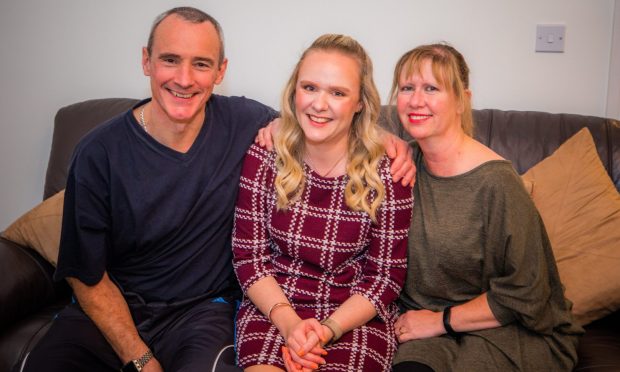
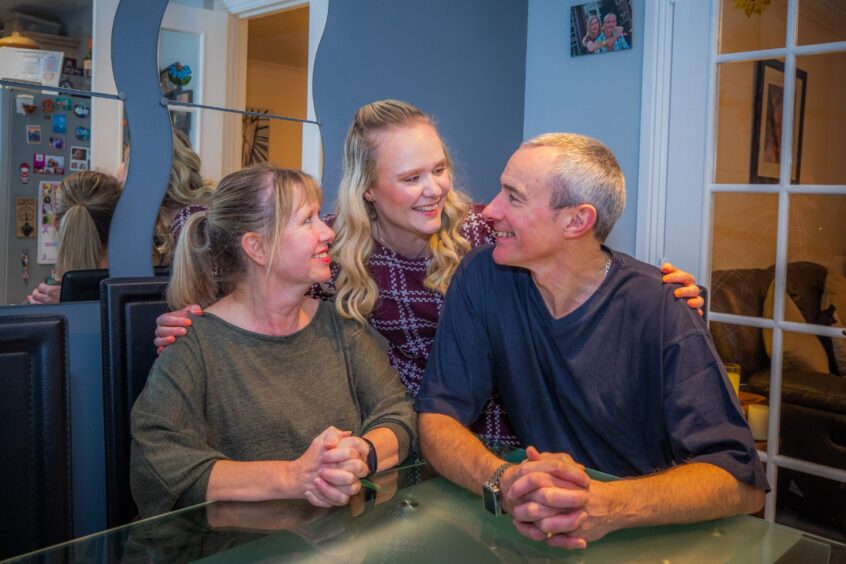
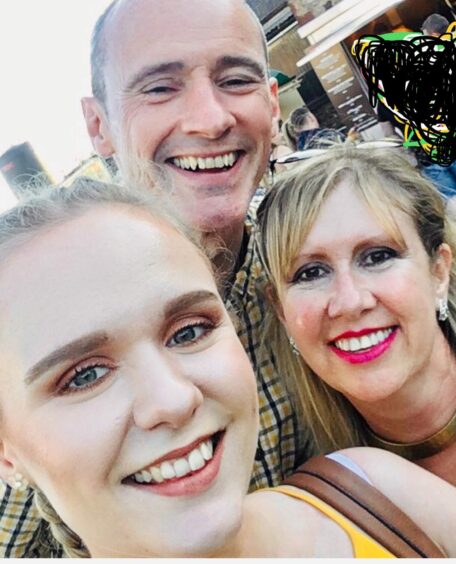
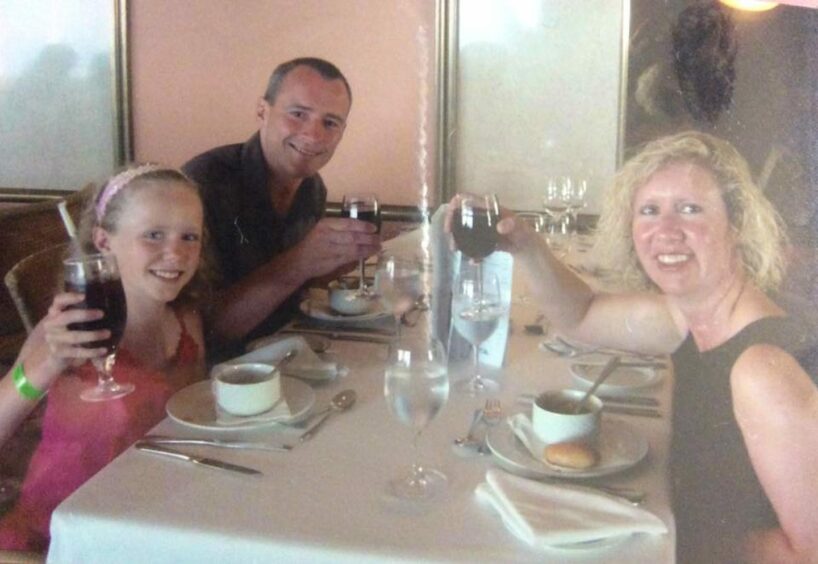
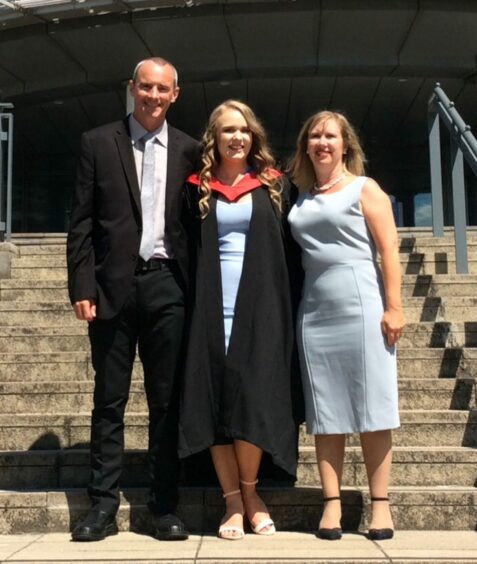
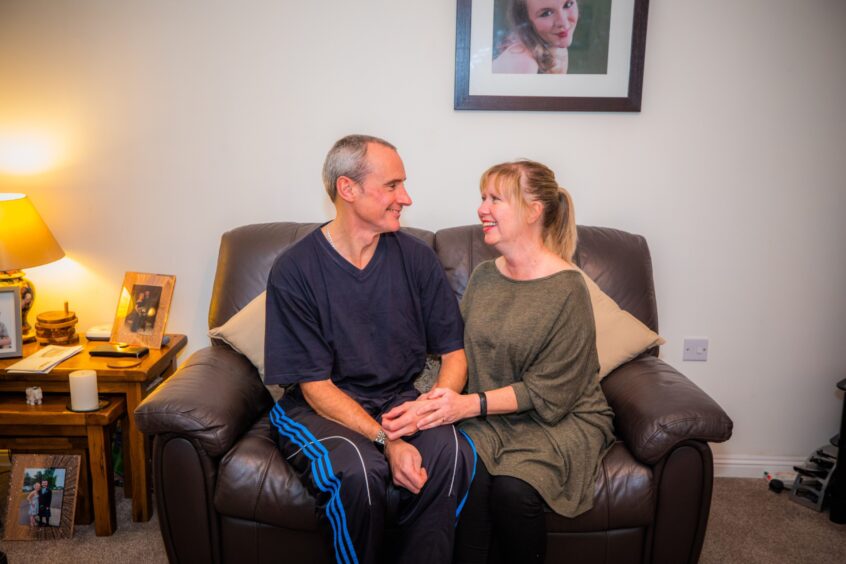
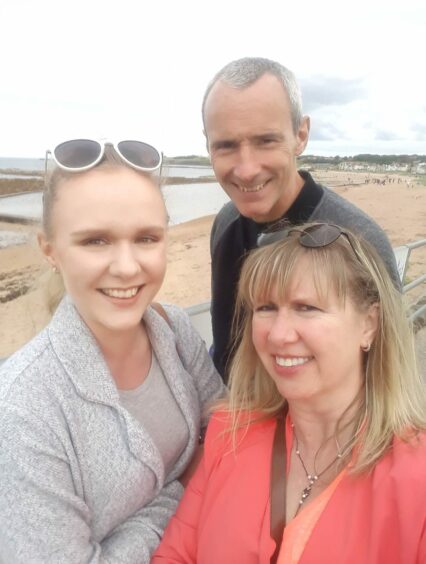
Conversation